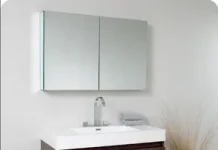When planning to install a new HVAC system, it’s important to ensure all factors are properly considered to make sure the system is efficient and effective. Several factors can impact performance, energy consumption, and overall satisfaction, whether replacing an old unit or installing one for the first time. Key factors include system size, energy efficiency, and ductwork condition. Moreover, you should consider indoor air quality, climate, and the type of HVAC system itself. For proper HVAC installation, it’s crucial to assess these elements.
Key Factors To Consider When Installing A New HVAC System
Here, we’ll cover the most important factors you must consider before moving forward with your HVAC installation.
1. System Size and Capacity
One of the most important factors to consider is the size and capacity of the HVAC system. An HVAC system that is too small for your space will struggle to maintain the desired temperature, while one that is too large will waste energy. A properly sized system ensures your home is comfortable while optimizing energy use.
2. Energy Efficiency
Energy efficiency is crucial when selecting an HVAC system. Although more energy-efficient systems tend to cost more upfront, they can save you money in the long run due to lower operating costs.
Look for systems with a high SEER (Seasonal Energy Efficiency Ratio) rating for air conditioners or AFUE (Annual Fuel Utilization Efficiency) ratings for furnaces.
3. Ductwork Design and Condition
Your ductwork plays a huge role in the effectiveness of your HVAC system. If your ducts are poorly designed or in bad condition, it can lead to inefficiency, air leaks, and uneven heating or cooling. Before installing your HVAC system, it’s important to inspect the ducts and ensure they are properly sealed and insulated.
4. Indoor Air Quality (IAQ)
Another crucial factor to consider when installing an HVAC system is how it impacts indoor air quality (IAQ). A good HVAC system should heat or cool your home and help improve the air you breathe. This is especially important for people with allergies or respiratory issues. Consider systems with advanced air filtration features, like HEPA filters or air purifiers.
5. Climate and Local Weather Conditions
The climate in your area will greatly influence the type of HVAC system you choose. If you live in an area with extreme temperatures, like a hot and humid climate or a cold, snowy one, you’ll need a system to handle these conditions. A heat pump may suit milder climates, while areas with harsh winters might require a separate furnace and air conditioner for adequate heating and cooling.
6. Cost and Budget
HVAC system installations can be expensive and vary significantly depending on the system type, installation complexity, and additional features. It’s important to set a realistic budget that includes not just the cost of the unit, but also installation, any necessary ductwork, and potential future maintenance or repairs.
7. Type of HVAC System
There are several types of HVAC systems, each with its advantages and disadvantages. The most common systems are:
- Split Systems: These systems have separate components for heating and cooling, including a furnace and air conditioner.
- Heat Pumps: These are versatile systems that can provide heating and cooling by reversing the refrigerant flow.
- Ductless Mini-Split Systems: These are ideal for homes without ductwork and are efficient at both cooling and heating.
- Hybrid Systems: These systems combine a heat pump with a furnace to optimize energy use depending on the season.
8. Professional Installation
Although you may be tempted to attempt DIY installation to save money, hiring a professional for HVAC installation is crucial. Certified technicians have the expertise to size and install the system properly, ensuring optimal performance.
How Long Does HVAC Installation Take?
The time it takes to install an HVAC system depends on several factors, including the type of system, the complexity of the installation, and whether any additional work, such as replacing ductwork or adding a new furnace, is required.
Most experienced technicians can complete a typical central air conditioner installation in about four to eight hours. However, if the installation is more complicated or involves replacing an older furnace along with the air conditioner, it may take longer.
Conclusion
When planning for HVAC installation, it’s important to consider system size, energy efficiency, ductwork condition, and air quality to ensure the system meets your needs. Additionally, climate, local weather, cost, and the type of HVAC system will all influence your decision. Finally, professional installation ensures everything is properly set up for long-term efficiency. By considering all these factors, your HVAC installation will be successful and lead to improved comfort and savings in the long run.




